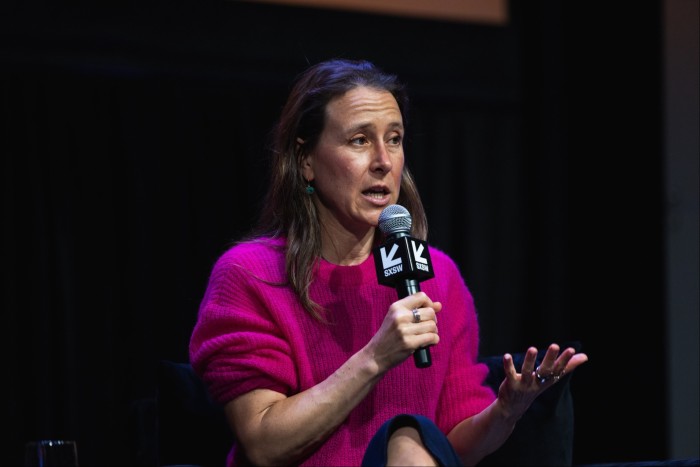Unlock the Editor’s Digest for free
Roula Khalaf, Editor of the FT, selects her favourite stories in this weekly newsletter.
Genetic testing company 23andMe’s bankruptcy filing in March looked like a glum end to a short, troubled life. The stock had crashed from a peak of $320 in 2021 to less than $2 in March. Losses were mounting, and cash was running out fast.
But the Chapter 11 process has brought a happy ending, at least for some. An auction of 23andMe’s assets has elicited a $256mn bid from US drugmaker Regeneron Pharmaceuticals. The agreement still needs to be approved by a bankruptcy court. Assuming it goes through, Regeneron will be the owner of assets including the genetic data from about 15mn people who have used its at-home DNA testing kit. (The figure, last reported in January, would have fallen since then as users look to delete their data following news of the company filing for bankruptcy).
Regeneron’s offer is a far better outcome than the lowball bid of 41 cents a share — or around $11mn — that co-founder and ex-chief executive Anne Wojcicki proposed a month before 23andMe filed for bankruptcy. The stock, which was delisted and now trades over the counter, tripled in value on Monday after the deal announcement, to $2.70. Some investors think the shares could be worth even more — more than $8 after restructuring costs and other fees and fines are taken out, according to one investor’s model, seen by Lex.
Being spliced on to Regeneron, with its $64.5bn market capitalisation, will free 23andMe from its fatal dependence on sporadic revenue. The company had failed to persuade most of its customers to do more than buy a single kit. Regeneron’s ample finances give it some breathing space. The drugmaker made a net profit of $4.4bn on $14.2bn last year and its research and development spending for 2024 topped $5bn.
It could help Regeneron out too, by bolstering its focus on genetics. While the company’s blockbuster drug — an eye medicine used to treat macular degeneration called Eylea — pulled in nearly $6bn in sales last year, growth is slowing. Its patents are set to expire in the coming years.
Regeneron chief executive Leonard Schleifer has said he sees the company’s future being driven by genetic research. The company already runs a research centre with a DNA database of nearly 3mn participants, which it uses to identify possible future areas to target science and inform drug development programmes. It also has a separate focus on gene therapy. One promising treatment could help restore partial hearing in children born with profound genetic hearing loss.
A big risk for 23andMe was that its users would simply delete their data en masse. Regeneron still has to persuade customers that it is a good steward of their information. But the biotech company is no stranger to taking moonshots, or to being patient. It took Regeneron two decades to win its first product approval from US regulators. At this low price, it can afford to stick 23andMe in the Petri dish and see what, if anything, grows.
